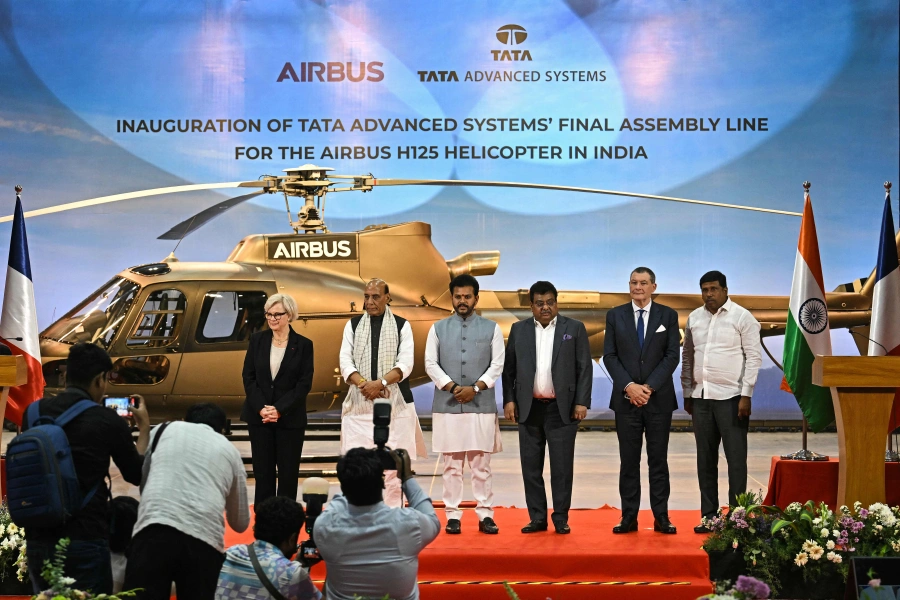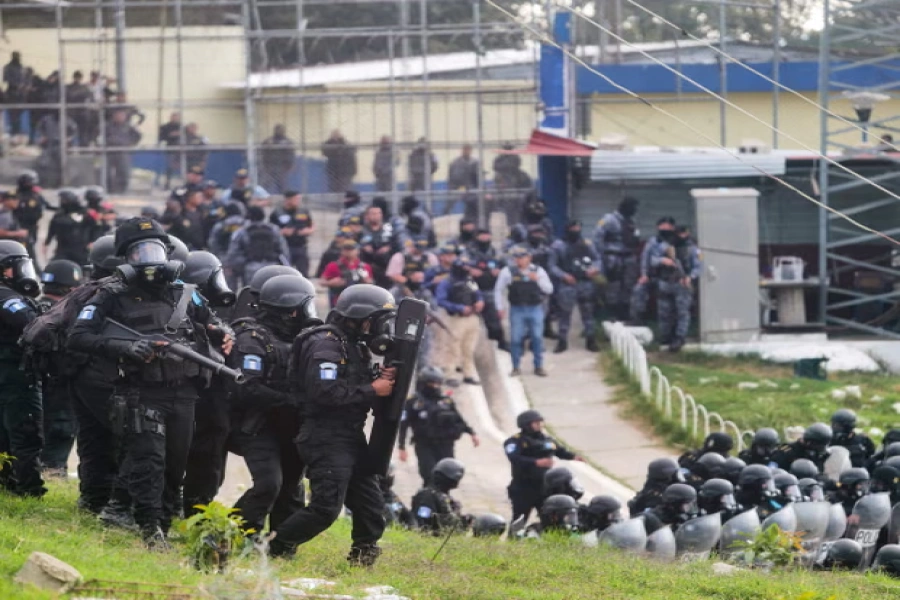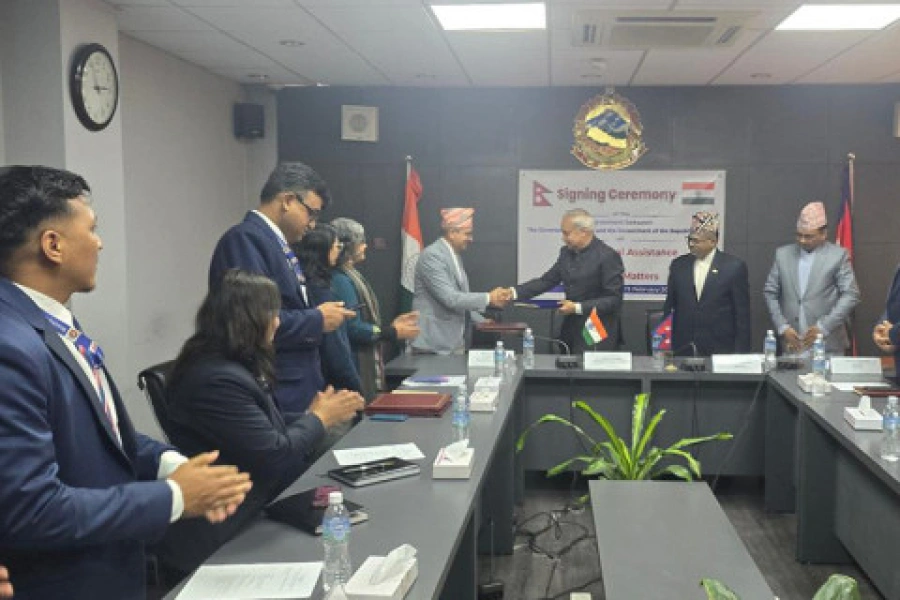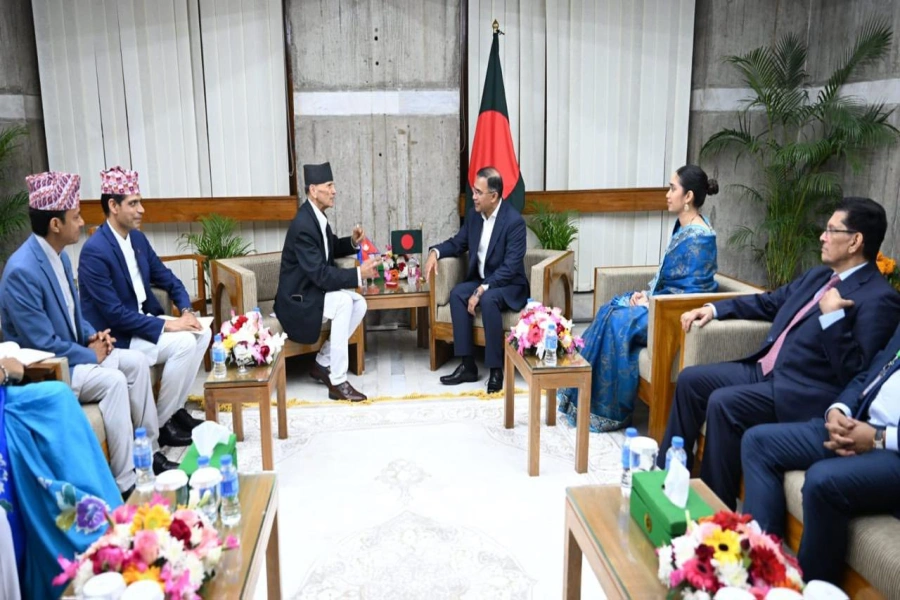Nepal, one of the world's small powers, has greater significance in regional politics
Nepal can be transformed as a developed nation only if it succeeds politically, diplomatically, and economically, moving from a surviving "small state" to a significant "influencing power" by defying the notion of traditional theories of international relations that "bandwagon," "bargain," or "buffer".
A variety of political shocks and waves have been sparked following Donald Trump's triumph as the 47th president of the United States, both domestically and internationally. The president-elect vowed supporters that he would make America's future “bigger”, “bolder”, “richer”, “safer”, and “stronger” during his victory speech. As a longstanding super power, America has many domestic and international responsibilities as well as challenges to deal with. Trump's rationale to preserve American greatness, diplomatic intelligence, and the legacy of American thinking on foreign policy, however, is yet again to be tested.
The interests and policies of the United States have a significant impact on those of numerous nations, both bigger and smaller, including its partners, allies, and adversaries. The greatness of America largely depends on how well it handles a variety of international issues, such as the ongoing conflicts in the Middle East and Ukraine, its relations with rising superpower China, the EU, and NATO, as well as how responsibly it collaborates to handle several transnational issues including climate crisis, cyber terrorism, maritime security, and nuclear and AI threats, among others.
The “bigness” of Israel—a small state in the Middle East—has been constantly questioned by many nations, perhaps as a result of American vested interest in the region and beyond. Nepal's small state status is a high notion, definitely as a result of the enormous rising neighbors on both sides. Bigness usually occurs as a relative phenomenon of smallness. The "bigness of smallness" in this context refers to the small state's geostrategic credibility both within and outside of the region.
Despite the fact that small states are less likely to use their economic or military might to alter the actions of larger states, they can still have a significant impact on global discourse and the development of the international order. It takes more than just military prowess, economic power, or geographic advantage for states to leave a lasting impact. They must take a calculated risk and project a "paragon of diplomacy" in order to gain the trust of larger nations.
Small States in Regional Integration
Nepal, one of the world's small powers, has greater significance in regional politics. Nepal's existing geo-location, positioned between two rising economic giants—China and India—has drawn constant attention and careful scrutiny from the World Powers. This could perhaps be by assessing the soft potentials and natural resources of Nepal or perhaps by thinking that Nepal can become a stable hub to challenge or counter challenge the immediate neighboring powers. Nepal's location has become more significant in the region than ever before because of the Belt and Road Initiative's (BRI’s) projection of Nepal as a bridge connecting China and the rest of South Asia.

One example of the bigness of smallness is the role played by Singapore and Vietnam in the US-North Korea summit in 2018 and 2019 respectively, where their bases facilitated the two nuclear-armed rivals host the meeting successfully. Vietnam has proven to be equally trustworthy to the east and west, while Singapore's history of neutrality, dependability, trustworthiness, and security is one of the factors that led to its selection as the summit location.
Despite its small size, Iceland's location is crucial for transatlantic security. Iceland is perhaps the only nation without armed forces in the world. The North Atlantic Treaty Organization (NATO) counts Iceland as one of its founding members due to its geostrategic location. The geo-location of Iceland has strengthened the US-Iceland relationship. It is said that Iceland’s geo-strategic position is more important to US security than the security of Iceland itself. The geo-location of Georgia, Ukraine, Kosovo, and Macedonia is also crucial for collective NATO security, while from the Russian perspective, Ukraine's possible accession to NATO poses a threat to its national security.
Another instance of small states advancing the interests of larger states is the US's historical relations with Bangladesh and Sri Lanka. Although things were different in the recent past, Malaysia, Sri Lanka, and the Maldives are now thought to serve Chinese interests in the BRI. In the Middle East, Jordan’s stability is again largely under US interest. Tunisia is another small state with geo-strategic importance for regional stability in the Middle East and North Africa. Sweden, Norway, and Denmark have made exemplary efforts in promoting the norms of sustainable development and leadership attempts in the climate crisis within the UN, which shows the examples of Nordic countries acting as environmental champions. Despite their smallness, the Small Island Developing States (SIDS) and the Alliance of Small Island States (AOSIS) are having a significant influence on the international discourse.
The bigger states now have to acknowledge that small states are the primary drivers of economic growth, peace, and security. The role of small states is crucial for economic integration, soft partnerships, connectivity, access, and regional integration.
The Bigness of Nepal
Nepal's geostrategic significance has been steadily increasing in recent years. As evidenced by the history of South Asian politics and recent developments, Nepal’s geostrategic location in the region has gradually changed from a "safe zone" to a "buffer zone," to a "competition zone," and finally a "clout of attraction". Nepal must, therefore, play very smart and cautiously in its political, diplomatic, and economic dealings if it hopes to maintain its growing prominence.
The growing geostrategic rivalry in Nepal between the US, China, India, and the EU shows how important Nepal is to all of these nations. The competition between China and the US, India, or the EU in the areas of trade, energy, investment, diplomacy, and railway connectivity in Nepal demonstrates the country's geostrategic importance. A new milestone in Nepal-China strategic relations was reached in 2016 when Prime Minister KP Oli visited China and signed ten agreements in a variety of sectors, granting Nepal access to four Chinese seaports for trade with a third nation. Nepal's geo-strategic credibility has been assiduously enhanced by China's confidence in Nepal as the protector of the security and stability of the Tibetan region and a geo-strategic soft partnership in the BRI. Prime Minister Oli should strategically step up in bringing the previous agreements to execution, with the interests of the country at the forefront, as he has received a formal invitation to visit China in the first week of December.
In an effort to counteract China's increasingly powerful influence in the region and beyond, India is also demonstrating its influence in Nepal through a customized strategy. Nepal's geostrategic significance increases as India works harder to keep China out of South Asian politics. Because of the delicate and unstable nature of the Tibetan region, the BRI's soft partnership, and China's security concerns, Nepal would be more strategically significant even if India wanted China to be a part of South Asian integration.
Beyond Nepal's regional bigness, Prime Minister Oli's participation in the 79th session of the United Nations General Assembly (UNGA) with the vision of becoming a developed country by 2043, as well as his speeches at Harvard and Columbia University, the two top universities in the world, and the World Economic Forum (WEF) in 2018, marked a new beginning for Nepal to improve its coexistence in the global economy, trade, and diplomacy. Several admirers both domestically and internationally have praised Prime Minister Oli's valiant attendance at the 79th and 73rd sessions of the UN General Assembly, where he presented the country's image with a broad foreign policy outlook.
Oli has become Nepal's first prime minister in office to speak at esteemed universities like Harvard, Columbia, and the World Economic Forum. He nobly reaffirmed the need to use global governance to address the new transnational issues instead of pleading for sympathy and grants. This demonstrates Nepal's aptitude to effectively defend its sovereignty and its equal standing in the global arena as a model of multilateral diplomacy. In recognition of the shifting global political, diplomatic, economic, and globalization landscape, Nepal organized the “2019 Nepal Investment Summit”, which drew in over 700 high-ranking international investors, policymakers, industry experts, speakers, dignitaries, influential figures from the global economy, and high-ranking government representatives from about 40 nations.
The key question, however, is whether the succeeding administrations have been sufficiently strategic to seize and capitalize on those opportunities.
The BRI Induced Bigness
India's denial of participation in the BRI might have made Nepal more strategically important to China. Nepal now has to play a geo-strategic role in the region as participants of the BRI. Trilateral cooperation between China, India, and Nepal would have been possible if India had signed the BRI project. China and India would then trade through Nepal. India and China would have benefited far more from that than from trade with the United States or Europe, which could again heighten Nepal’s bigness.
For China and India's security, Nepal's geostrategic location is more crucial than Nepal itself. India and China are geographically close to Nepal, so Nepal's security—or lack thereof—will have an impact on their security. India's constant concerns about security and China's pursuit of economic dominance can only be resolved by a strategy known as "Broad Regional Integration," or the new BRI, in which Nepal can serve as an integrating link.
Nepal is thought to be the link between China and South Asia in the BRI after signing the prospect. In 2019, Chinese President Xi Jingping visited Nepal. He might be open to making a second trip to Nepal. Nepalese delegates are being invited by Beijing and Delhi in succession. The leaders and officials from China and India are regularly visiting Nepal. Indian Prime Minister Narendra Modi has already made four trips to Nepal during his previous terms as India has retraced its diplomatic path to the country. In his third term as India's prime minister, he is probably going to make his trip to Nepal in the foreseeable future. The fourth BIMSTEC summit was successfully held in Kathmandu. Nepal is viewed as a mediator by all of the regional organizations' member states, which enhances Nepal's geostrategic importance. Furthermore, as the latest SAARC chair, all eyes are on Nepal to restart the stalled SAARC process.
Nepal, however, must take a calculated step forward and demonstrate exceptional diplomacy in order to gain the trust of larger economies. Nepal has never been a supporter of bloc and alliance politics. And it shouldn't. Instead, it should continue to uphold its neutral, reliable, compliant, and lofty ideals. The idea behind economic perspective is to practice economic dynamics in a way that promotes security, connectivity, and peace. Nevertheless, in order to serve the interests of the country and enhance its steadily rising international profile, Nepal must create a thorough "Political Intelligence Culture" and practice "Stately Economic Diplomacy" with a broad vision of building Nepal as a developed nation.
Vision 2043: Building a Developed Nation
Prime Minister KP Sharma Oli underscored Nepal's prospect to achieve developed nation status by 2043 during his speech to the 79th session of the United Nations General Assembly (UNGA).He, however, did not specify how the country would accomplish such an ambitious mission. It might not go as smoothly as anticipated, on the other hand, it would neither be impossible to accomplish this mission. The fact that a number of development indicators—such as economic competitiveness, political stability, diplomatic influence, social integrity, quality of life, academic recognition, scientific and technological innovation, tech and data sovereignty, public services, and foreign policy—lag well behind international metrics may make it more difficult. Conversely, it might be achievable if the vision and philosophy were turned into reality with pragmatic policy and action. The country should be passionate enough to adjust and grasp the pace of transformation—both within and outside—and aspire to thrive by cooperating with the international community, especially with development partners, including those in close proximity.
Nepal can be transformed as a developed nation only if it succeeds politically, diplomatically, and economically, moving from a surviving "small state" to a significant "influencing power" by defying the notion of traditional theories of international relations that "bandwagon," "bargain," or "buffer". To put it another way, it has to understand the "bigness of smallness" in reality and promote "self-help" in order to realize the eminence of a developed nation. The country must, in fact, prudently use its "soft powers" and internal values—such as geography, history, natural resources, culture, morale, civilization, and education—as well as foreign policy, technology, modernism, infrastructure, and research and development such that it can smoothly attain the status of a developed nation.



































